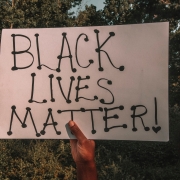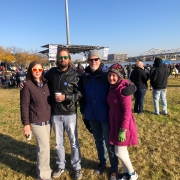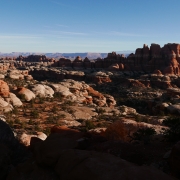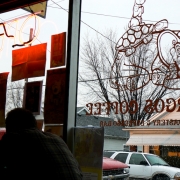Rommie’s Thoughts on Eckhart Tolle’s The Power of Now
Where is your mind? Right now. In this moment. What is on your mind?
Imagine picking up whatever is on your mind and setting it outside the door. It will be fine sitting there. Now, look up. What do you see? What do you hear? Notice I did not ask what you feel.
I’m outside. I hear a soft rustle of leaves. A robin’s song. A buzz. The subtleties of a distant jet. This is the Now. There are no problems in the Now. Life just is. This is the wisdom of Eckhart Tolle (ET), author of The Power of Now. Every moment of every day is what it is, as if we had chosen it that way, good or bad—and even “good” or “bad” are just concepts of the mind. The things we judge. The things we react to. The things that we empower to literally suck the life energy out of us as if the problem shouldn’t be what it is. As if we shouldn’t accept life as it is just now. As if we shouldn’t accept, that in large portion, we have likely created whatever “problem” we are reacting to. If we accept the “problem”, what will happen? We will become conscious. ET’s philosophy is to become aware, conscious, awake to what is. Accept what is as if you had chosen it. Then observe the transformation. The evolution of consciousness, of acceptance, of peace.
Our egos love to react.
Our egos love to argue, to fuss, complain, and demand that life be “better” as if the ebb and flow of life should be something other than what it is.
I’m here to challenge you to give the “Now” a chance.
It takes practice to live, speak, and enjoy the Now, which is really all anyone has. Becoming conscious of one’s self, one’s ego, one’s identification with mind is the first step towards acceptance, towards peace. ET teaches to observe your thoughts but don’t believe them. Think about when you quarreled with someone last. If you’re honest about your role in the non-peace, it likely comes from a place of fear. A fear of being wrong. A fear of “losing”. Losing what? And even if you “lose”, what does that mean about you, if anything? Can you accept the circumstances without judging them?
Which brings me to resistance. Can you accept the circumstances without resistance?
ET teaches that suffering does not come from the circumstances but our resistance to them. Again, whatever the circumstances are, this is the way it’s supposed to be. Our response, not reactivity, is to embrace whatever “is”. Whatever the circumstances are is the way the circumstances are supposed to be…or they wouldn’t be that way. It is our reaction or response that determine whether or not we suffer.
Surrender to what is.
ET teaches that “surrender is the simple but profound wisdom of yielding to what is rather than opposing the flow of life.” When you stop resisting what is, when you surrender, the past and future cease to have power.
But what if someone wrongs me? Does acceptance and surrender mean I allow others to mistreat me? Does surrender mean give up? Give in? Enable disrespect? What if I have disrespected another person? Do I accept that, do I surrender to that? ET teaches that “resentment and pain arise from the false sense of self we’ve created for ourselves and others.” That our grievances are reactions to the artificial egos of others. He teaches how to bring non judgment and equanimity when others overstep our boundaries. He also teaches how to forgive our past selves and what to do when the pain of memories hijack our emotions. Holding on to old wounds is one of the surest signs that we are caught in the egotistic thinking of the false self. However, ET shows us the way to let go and embrace the liberation that living in the present moment, the Now, brings us.
Make the present moment the primary focus of your life.
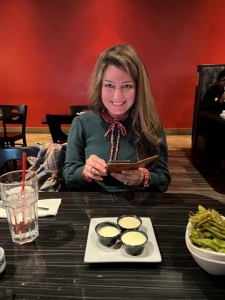 Rommie Oshrieh is Co-Founder/Owner of Sage Support Services and True North Counseling.
Rommie Oshrieh is Co-Founder/Owner of Sage Support Services and True North Counseling.
She serves as Executive Director of Sage and has served as a Case Manager/Supervisor for individuals with Developmental and Intellectual Disabilities for the past 15 years.


